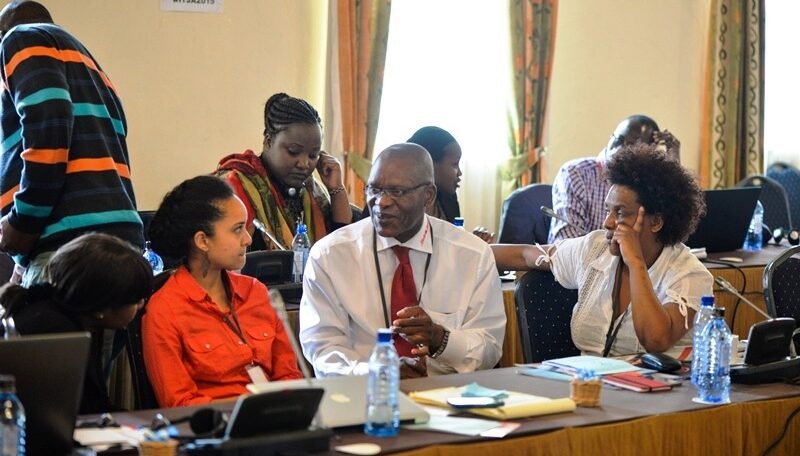KENYA. Nairobi. With the onslaught of the global Coronavirus pandemic, stakeholders have raised fears over the scale and scope of Illicit Financial Flows (IFFs) in the African continent as authorities focus on the pandemic.
To remain on course in the pandemic’s face, Tax Justice Network Africa (TJNA) is capitalizing on technological innovation to carry out its annual capacity building for tax justice advocates in Africa via virtual meetings.
This year marks the 7th edition of the International Tax Justice Academy (ITJA) themed “Tax Justice Advocacy: Increasing Participation of Civil Society Organisations (CSOs) and Journalists through Capacity Building”.
“Starting in 2014, we have so far trained over 1,000 participants drawn from different stakeholders concerned about Africa’s development and the need for domestic resource mobilization to finance Africa’s development,” says Alvin Musioma, ITJA Executive Director.
This year’s International Tax Justice Academy (ITJA), which is organized virtually, brings together participants from the entire African continent. They are drawn from the civil society, media, trade unions, policy makers, and academia.
Topics include: taxing the digitalised economy, tax justice, advocacy strategy, IFFs, and Africa’s investment regimes, financial secrecy, investigative journalism, amongst others.
The African continent, endowed with significant natural resource wealth with good husbandry, has the potential to finance its development. However, there exist illegal cross-border movements of money and capital that threaten the continent’s sustainable development and have been growing every year.
“The threat that Illicit Financial Flows (IFFs) pose on the continent’s integrity and stability of its financial system in normal times has existed over decades, and now there is much to worry about in the pandemic’s face,” he adds.
Africa is home to the world’s largest arable land mass, second largest and longest rivers (the Nile and the Congo), and its second-largest tropical forest.
Stance of African Development Bank Group
A study carried out by the African Development Bank Group estimates that the total value added of the continent’s fisheries and aquaculture sector alone stands at US$ 24 billion. Besides, about 30 percent of all global mineral reserves are found in Africa.
The continent’s proven oil reserves constitute 8 percent of the world’s stock and those of natural gas amount to 7 percent. Minerals account for an average of 70 percent of total African exports and about 28 percent of gross domestic product.
Even with such enormous resources, the continent’s poverty rate stands at 41 percent, and out of the world’s 28 poorest countries, 27 are in Africa all with a poverty rate above 30 percent. Undoubtedly, IFFs have turned the continent into a net creditor.
During the academy, TJNA endeavours to empower the target groups with skills to identify, track and report illicit outflows from the continent. While there is dependence on academia and research institutions for publication of scientific studies, it is the role of the civil society to advocate for increased transparency around public revenues and expenditures.
Read also: East African Refugees Suffer Escalated Impact From COVID-19
“We aim to impart knowledge on the participants in broader topics. This includes extractives, double tax agreements, tax incentives, taxing multinational companies, increasing accountability and transparency in tax systems and how we push for more progressive tax systems,” he adds.
Trade unions are expected to take advantage of their presence in every country in the continent and explore possibilities of collaborating with non-state actors to combat IFFs in Africa.
It is envisaged that the academy will strengthen alliances, enlighten stakeholders, and mobilise champions of tax justice advocates with enhanced capacities to reduce IFFs.
“Despite the limitation of Coronavirus, we find that using virtual online training brings diverse participants from the continent compared to physical training where we used to bring participants to Nairobi,” added Musioma.



